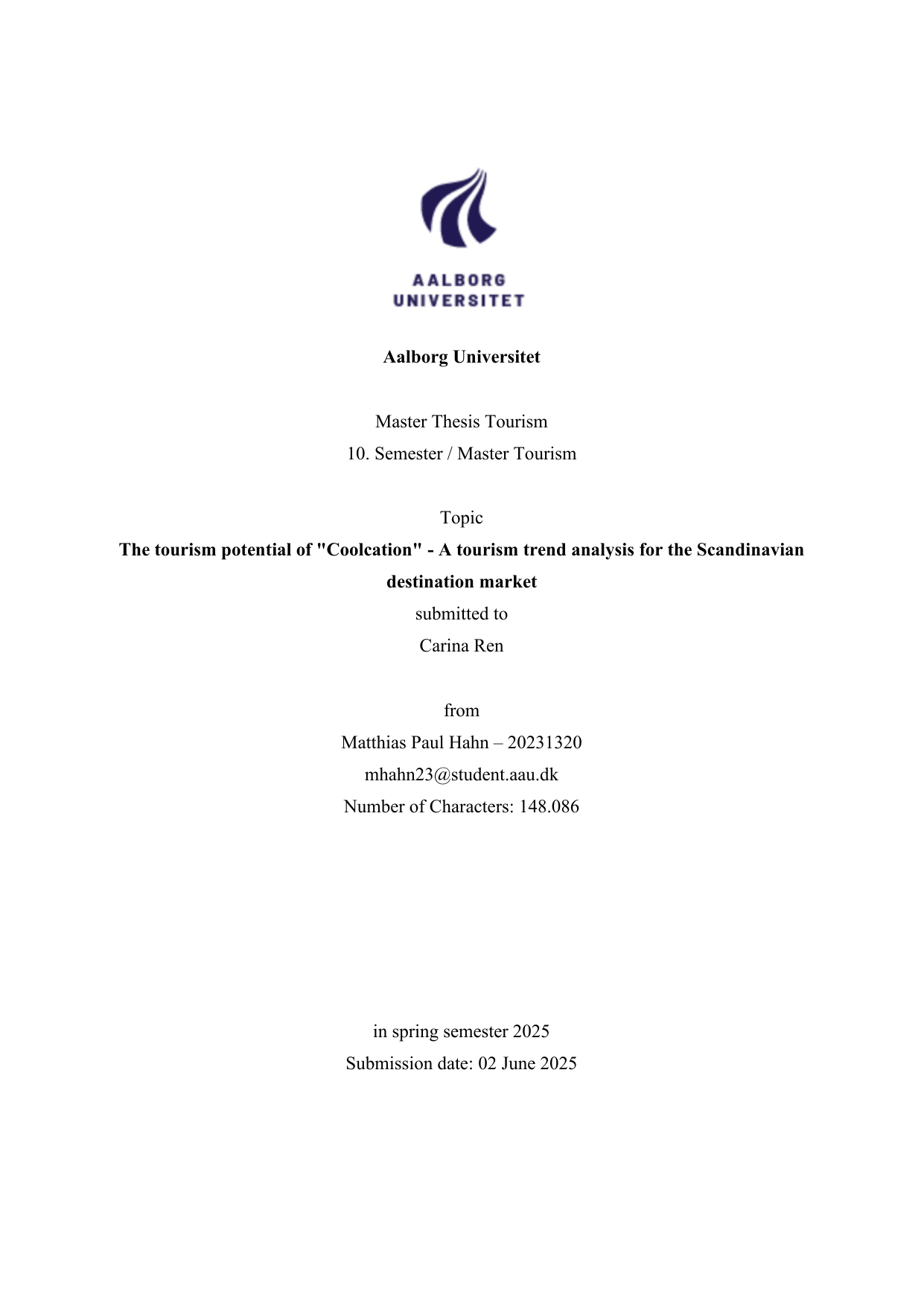
The tourism potential of "Coolcation" - A tourism trend analysis for the Scandinavian destination market
Author
Term
4. term
Education
Publication year
2025
Submitted on
2025-05-31
Pages
97
Abstract
In the context of rising global temperatures and increasing climatic disruptions, tourism patterns are undergoing significant transformations. One emergent trend, termed "Coolcation," captures this shift. Travelers are increasingly seeking cooler destinations during the summer months to escape the extreme heat common in southern Europe and other traditionally warm vacation spots. This master's thesis investigates the tourism potential of "Coolcation" within the Scandinavian destination market, focusing on Denmark, Sweden, and Norway, regions that naturally align with the climatic and experiential preferences of this evolving demographic. The study applies to constructivist research philosophy, combining qualitative methods primarily semi-structured interviews with key stakeholders in regional tourism agencies and an autoethnographic reflection. The core objective is to explore how Scandinavian destinations are responding to and capitalize on the “Coolcation” trend, particularly through marketing strategies, sustainable development, and adaptation to new tourism behaviors. The thesis identifies five critical analytical dimensions: the relevance of the trend, development of target groups and demand, regional advantages and challenges, marketing strategies combined with sustainability efforts, and the long-term outlook for “Coolcation” tourism. Findings reveal that while the concept of “Coolcation” is relatively new in terminology, the behavior it describes has deepened in recent years, with measurable changes in visitor motivation. Some destinations see the “Coolcation” trend as a valuable media and branding tool, while others are cautious and express ethical concerns about the commercialization of climate change for tourism. However, a consistent theme across all regions is the emphasis on sustainability, managing seasonality and avoiding over-tourism during the peak summer months. The research further emphasizes that “Coolcation” is not just a reactive trend but a strategic opportunity for repositioning Nordic destinations in the global tourism landscape. With rising awareness around climate change and sustainability, Scandinavia is well-placed to offer meaningful travel experiences aligned with environmental and social values. Yet, success depends on nuanced, responsible marketing, infrastructural readiness, and a long-term vision for yearround tourism. By synthesizing empirical data and expert perspectives, this work provides practical insights for destination marketers, policy makers and researchers. It shows how climate-related changes in tourism preferences can be not only challenges but also potential drivers for innovation and sustainable tourism development in cooler regions.
Keywords
Coolcation ; Scandinavia ; Tourism trend ; Climate change ; Sustainability ; Overtourism ; Travel behavior ; Destination development ; Marketing strategies ; Seasonality management ; Long-term tourism strategy ; Destination branding ; Denmark ; Sweden ; Norway ; Heatwaves ; Climate-conscious travel ; Summer travel behavior
Documents
